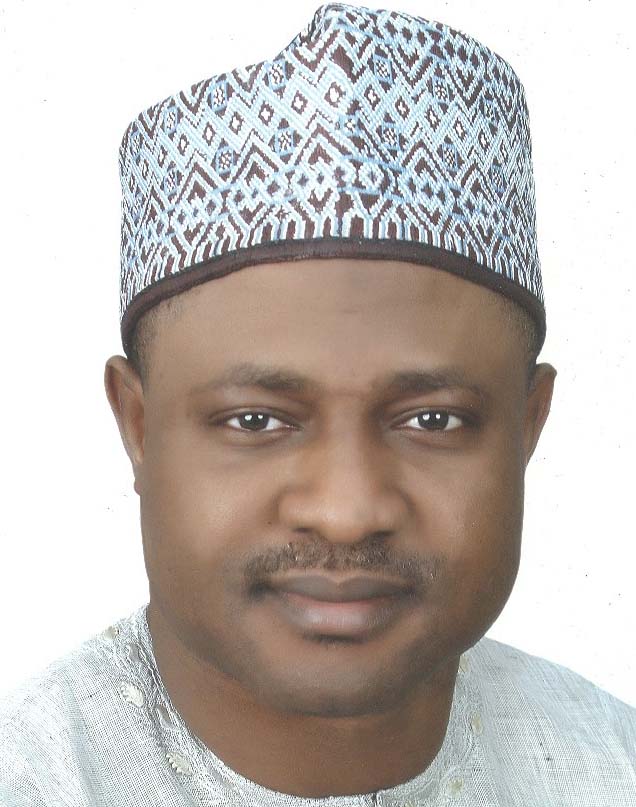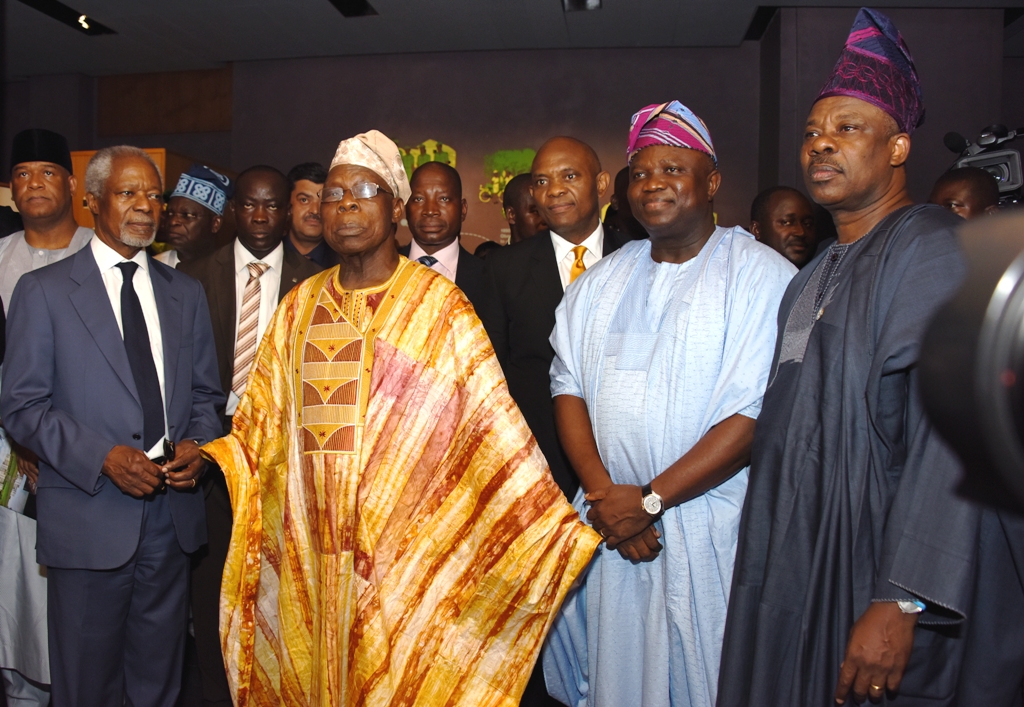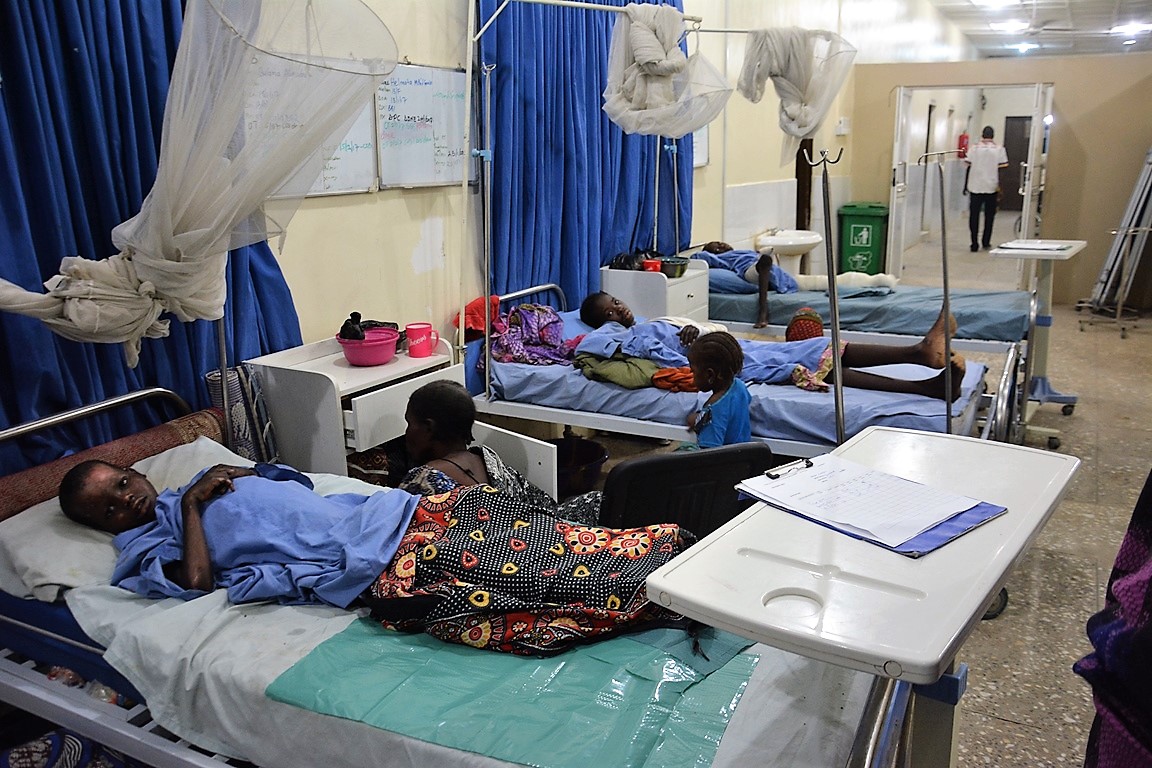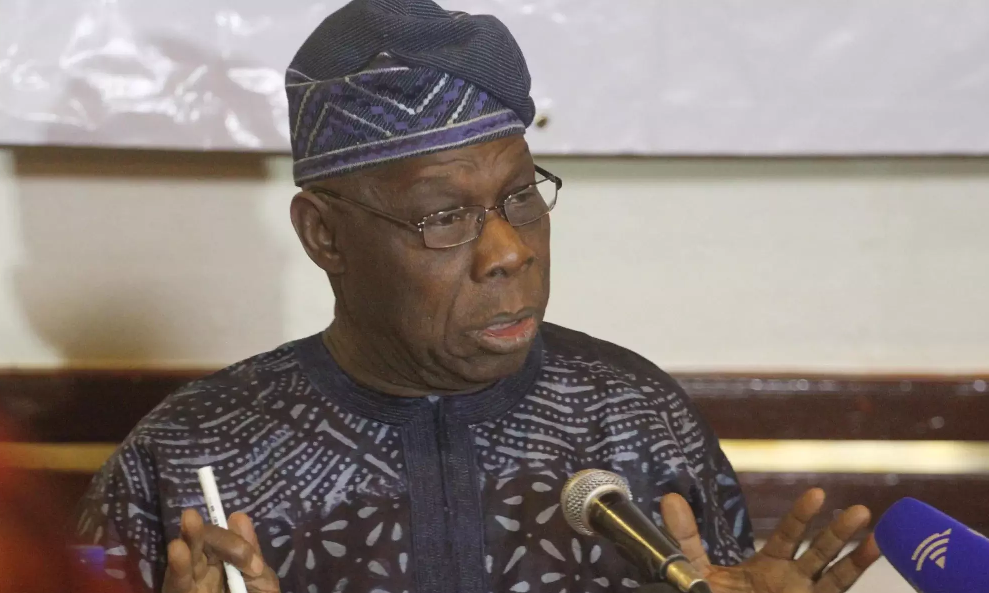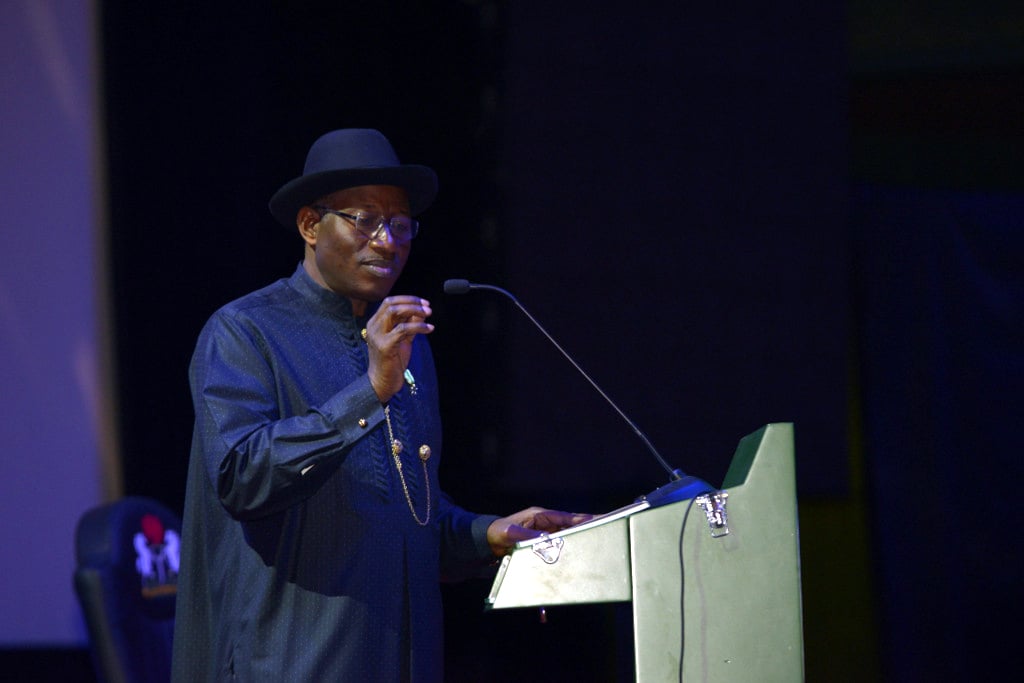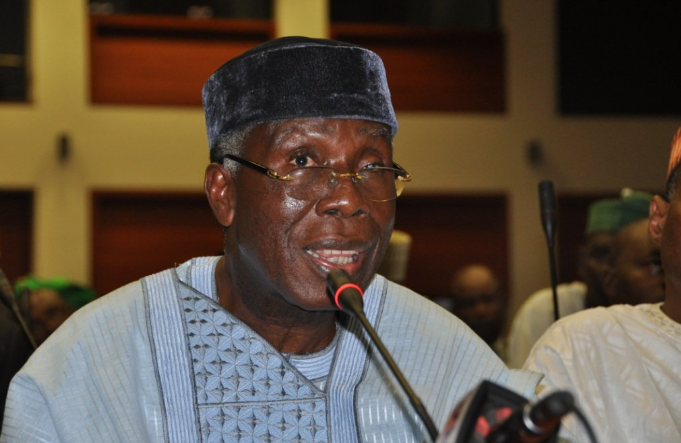When Nigerians overwhelmingly voted out a ruling party in 2015 and elected the candidate of the then leading opposition party, General Muhammadu Buhari (Rtd) as the nation’s President, an unmistakable signal was sent out that the country and the people had commenced the inevitable journey to redemption and self-discovery. It was a revolution of sorts that was largely inspired by the audacity, leadership and moral compass provided by a number of selfless patriots and nationalists. It is an open secret that this pack of great Nigerians were led by the phenomenal Chief Mathew Okikiola Aremu Obasanjo, a decorated war hero, former Military Head of State, two-term democratically elected President of Nigeria and an international Statesman of immense repute.
Chief Obasanjo had become ashamed of what the ruling party he helped to nurture and on which platform he won election twice had degenerated to. He knew and confided in a few persons that he feared that if Nigerians were not galvanized to oust the terribly inept and corrupt PDP government in the 2015 elections, we stood the risk of losing a country we all love so much. This in itself was a reflection of the love the former President had for Nigeria, above every other sentiments. Indeed someone once teased Chief Obasanjo as ‘Mr. Nigeria.’ I am tempted to aver that this person is not too far from the truth. The Chief Obasanjo that we all know, lives and breathes Nigeria and has shown repeatedly that he is ever poised to do practically anything that is legal and within his powers and prowess to keep our great nation united in peace and prosperity.
I am truly grateful to God that I had the uncommon privilege of having a front row view of Chief Olusegun Obasanjo as he made series of sacrifices for Nigeria when he returned to power as a democratically elected President of Nigeria in 1999. For the few years I served as his Special Assistant on Public Affairs, I was perpetually amazed (and dazed sometimes) at his uncommon intelligence, tenacity, work ethic and of course his intense and unalloyed love for Nigeria. The nation’s interest trumped, shaped and guided every decision or move he made as President. No aide, Minister or other official of the Obasanjo government would dare contemplate bringing any matter that did not put national interest ahead of any other considerations for the President’s approval. He loathed mediocrity and primordial sentiments. He resented all forms and shades of nepotism. With Chief Obasanjo, it must be what is best for Nigeria and he would always ensure that the most qualified person was picked to do any task at all times. In fact, I recall that on a number of occasions, President Obasanjo would bluntly tell either a Minister or an aide that he or she was not appointed because he liked the person but because he or she was the best for the job.
Not a few persons have finally come to the conclusion that Chief Olusegun Obasanjo is actually a gift from God Almighty to Nigeria. For reasons only known to God Almighty, Chief Obasanjo has always been on hand to pivot a rescue mission for Nigeria. It was to him as the Commander of the Army’s Marine Commando Division, in 1970 that the Biafran forces surrendered to, effectively ending the very unfortunate Nigerian civil war. Again, on February 13, 1976, when some misguided officers and men of the Nigerian Army led by Col. Bukar Dimka in a botched coup d’état, dastardly murdered the then Head of State and commander-in-chief, General Murtala Mohammed, the nation was thrown into confusion and there were even fears that another orgy of blood-letting could ensue.
Advertisement
Providence placed the then 40 years old Olusegun Aremu Obasanjo in the right place at the right time. Calm was restored to the country when the then military High Command nominated him to succeed his late boss as the new Head of State and Commander-in-Chief. Obasanjo’s tenure as military leader from 1976 to 1979 could well be regarded as Nigeria’s golden era. Nigeria’s huge potentials were abundantly harnessed and the country took its place as the true giant of Africa under the then young General. In 1977, he gave impetus to Nigeria’s rich endowments in oil and gas when he nationalized the oil industry and established the Nigerian National Petroleum Corporation (NNPC) and built the Port Harcourt, Warri and Kaduna refineries. As Military Head of State, General Obasanjo made the Nigeria National Shipping Line (NNSL) the pride of Africa just as the Nigeria Airways was the leading National Carrier in Africa, surpassing even Ethiopian Airways.
It is no wonder that Chief Obasanjo would always recall with nostalgia the glorious era of NNSL and Nigerian Airways. “When I was in office as Military Head of State, 19 brand new ships were specially built for Nigeria and we did not take delivery of some of them until I left office in 1979. When I came back in 1999, NNSL had been liquidated with all 19 ships and the five already in existence gone,” Chief Obasanjo once told us at a meeting. In the same regards, he readily recalls that while he was leaving office in 1979, Nigeria Airways had 32 aircrafts in its fleet but on his return to power 20 years after, the National Carrier had just one aircraft that barely flew. Of course Nigeria Airways has since been liquidated.
With a booming and well-managed economy, Nigeria earned the respect and the adulation of the international community. Nigeria championed the independence of a number of African nations, notably Angola and Zimbabwe and of course was a member of the Frontline States that led the crusade that crushed apartheid in South Africa. To flex its muscles in the continent, the Obasanjo Government organized the globally acclaimed African Festival of Arts and Culture (FESTAC ’77). The list of General Obasanjo’s achievements as Military Head of State is rather too long to totally recount here. However, Obasanjo became the toast of the world and deservedly earned the status of a globally acclaimed statesman when as Military Head of State, he conducted free and fair elections that ushered in democratically elected leaders into all the three tiers of government in Nigeria and voluntarily handed over to the nation’s first Executive President, Alhaji Shehu Shagari in 1979 and retired to his now famous Ota Farm in his home state of Ogun.
Advertisement
Unfortunately, however, civil democratic rule did not offer Nigerians the desired Eldorado, or so it seemed, and was unfortunately short-lived. Citing a litany of malfeasance including corruption, indiscipline, ineptitude, election rigging and maladministration, key leaders of the nation’s Military ousted President Shehu Shagari in a coup in 1984. For 14 years Nigeria reeled under the pressure and high-handedness of successive military governments. An attempt to return the nation to civil democratic rule was botched in 1983 when the military ruler at the time, General Ibrahim Badamasi Babangida annulled the Presidential election that the businessman, Chief Moshood Kashimawo Abiola was at the verge of winning. The backlash of the annulment swept Babangida himself out of office paving the way for the emergence of General Sani Abacha who easily elbowed out the technocrat, Ernest Shonekan, who was installed by Babangida as the head a contraption he called Interim National Government (ING).
As Head of State, General Abacha was unsparing of opposition, intolerant of dissent and impervious to constructive criticism or correction. It was not too long after Abacha assumed power that many well-meaning Nigerians, including Chief Olusegun Obasanjo and his former Deputy, Gen. Shehu Musa Yar’Adua (Rtd) started sensing that Abacha’s method of running roughshod over the country was an ill wind that would ultimately not blow the nation any good. In spite of all that Abacha represented, Chief Obasanjo refused to cower when the unity and wellbeing of Nigeria were at stake. In private and open letters to General Abacha as well as in media interviews within the country and abroad, Chief Obasanjo persistently counseled the regime to toe the path of rectitude.
However, Gen. Abacha’s intolerance and paranoia worsened when he made up his mind to transmute to an ‘elected’ leader. He was known to be assiduously working towards having the five officially registered political parties at the time, endorse him respectively as their Presidential Candidate. It was one of the darkest eras in the nation’s history. To perpetually silence his powerful and relentless critics, Gen. Abacha eventually devised the dubious scheme of implicating perceived opponents in phantom coups. In one of such aberrations, both Generals Obasanjo and Shehu Yar’Adua were in 1995 named among those purportedly plotting to overthrow the Abacha junta. The two great men were arrested and made to face to a kangaroo trial in a military tribunal where they were convicted and respectively sentenced to life imprisonment. Obasanjo was incarcerated in Yola prison while Yar’Adua was first moved to Port Harcourt prison before Abacha ordered his transfer to the decrepit Abakaliki prison. In prison both men were subjected to inhuman conditions in spite of the fact that they were not just former leaders of the nation, but also had fought for the unity of the nation. Unfortunately, Yar’Adua did not survive his ordeal in prison; but providence rescued Chief Obasanjo who eventually regained his freedom after General Abacha died unexpectedly in office. It has since been severally documented that the original plot by Abacha and his henchmen was to ensure that both men never left their respective prison cells alive.
But it was not too long that it became apparent that God rescued Chief Obasanjo for a purpose – an assignment that would once again put him at the forefront of efforts to restore the dignity, honour and glory of Nigeria. The annulment of the 1983 presidential elections had badly polarized the country while the high-handed method and tactics of the Abacha regime had traumatized overwhelming majority of the citizenry. General Abudulsalm Abubakar who succeeded the late General Abacha was intelligent enough to immediately deduce that a prolonged military rule would push Nigeria to the brink. Even when it was agreed that the country must speedily return to civil, democratic rule, the fact that the in-coming elected President must be a person that is profound enough to unite a fractured country and a traumatized people, was not lost on anybody. A combination of factors led the political class and the departing military oligarchy to settle for the recently freed Chief Obasanjo who eventually won the elections and became Nigeria’s second executive President in 1999.
Advertisement
Chief Olusegun Obasanjo’s glittering record as President from 1999 to 2007 is well documented for posterity to judge. However a few stand out and deserve generous mention as we celebrate Chief Obasanjo who clocks 80 years old this month. The infractions of the successive military administrations, particularly the regime of General Sani Abacha had made Nigeria a pariah State at the time Obasanjo was assuming office in May 1999. To bring Nigeria back to reckoning in the comity of nations, Chief Obasanjo embarked on intensive diplomatic shuttle. His efforts paid off handsomely and in a matter of months Nigeria returned to global reckoning. Being an international colossus himself, Chief Obasanjo played key roles in the repositioning of the African Union, including helping to establish the New Partnership for Africa’s Development (NEPAD) and the African Peer Review Mechanism (APRM), designed to promote democracy and good governance. From the outset of his administration, Chief Obasanjo consistently supported the deepening of regional cooperation through the Economic Community of West African States (ECOWAS) and the Co-prosperity Alliance Zone incorporating Benin, Ghana, Nigeria and Togo. With Nigeria’s image looming large internationally it did not come to many as a surprise when Chief Obasanjo at different times was either elected, nominated or appointed to serve as chairman of the Group of 77, chairman of the Commonwealth Heads of Government Meeting, and chairman of the NEPAD Heads of State and Government Implementation Committee.
With Nigeria now fully opened to the world, Direct Foreign Investments began pouring in, the most compelling being the huge investments that brought about the revolution in the telecommunications sector. We have Chief Obasanjo to thank for access to telephony and high-speed data services being enjoyed by millions of Nigerians today.
Conscious of the fact that investors would continue to hesitate to make the desired level of investments in the country if the reputation of Nigeria as one of the most corrupt nations in the world persisted, President Obasanjo vigorously pursued an anti-corruption crusade. With the cooperation of the then relatively young National Assembly, Obasanjo enacted the enabling laws that led to the establishment of two highly revered anti-corruption agencies; the Independent Corrupt Practices and other related Commission (ICPC) and Economic and Financial Crime Commission (EFCC). These anti-corruption bodies as well as the Code of Conduct Bureau were given sweeping powers by President Obasanjo to move against corrupt persons and institutions. In a matter of months, EFCC in particular under the indefatigable Nuhu Ribadu was already recording timeous prosecution and convictions and the world generously applauded Nigeria.
Against general apprehension about the role of the nation’s Armed Forces in a democratic setting, President Obasanjo launched a far-reaching reform of the Armed Forces, weeding off politically-exposed officers thereby whittling down or perhaps curbing out-rightly incidences of military incursion in political administration of the country.
Advertisement
Equally bent on buoying the nation’s economy, Chief Obasanjo sought to decisively stem the restiveness in the oil-rich Niger Delta. Again, working with the National Assembly, President Obasanjo introduced an executive bill that led to the establishment of the Niger Delta Development Commission (NDDC). In spite of the persisting complexities and contradictions in the Niger Delta, the NDDC remains a beckon of hope in the region. Nigeria has Chief Obasanjo to thank for this.
With the main task of restoring the dignity of Nigeria and opening the nation once again to the investing world, speedily accomplished during his first term in office, President Obasanjo on being re-elected in 2003 instantly began a mission to make Nigeria not just the largest economy in Africa but the most prosperous also. With investments streaming in, the Obasanjo administration began investing massively in infrastructure, notably in power, roads, water projects and of course the restoration of the original master plan of the Federal Capital Territory of Abuja. He also invested heavily in political, constitutional and electoral reforms. Further, he launched Nigeria’s first satellite into space. With his eyes set on the next generation, President Obasanjo, in a move that confounded even his worse critics, secured an $18 billion debt relief from the Paris and London clubs and Nigeria was free of debt!
Advertisement
With the economy now in sound footing, the nation’s middle class that had long disappeared rebounded. Nigerian banks recapitalized, making them bigger and much more attuned to the demands of the bourgeoning economy. For a President who inherited a foreign reserve of just $2 billion, President Obasanjo feverishly channeled funds to the reserve and this wise move shielded the nation’s currency from speculators and market forces. For most of Chief Obasanjo’s eight years in office the naira stayed firm and stable against other international currencies, particularly the United States’ Dollar. When President Obasanjo was leaving office in 2007, Nigeria’s foreign reserve stood at a staggering $43 billion. Statisticians are also in agreement that when President Obasanjo left office in 2007, the nation’s GDP had grown from 3% to 7%.
Equally worth commending is President Obasanjo ability to identify and hire some of the best hands to serve in government. It is to his eternal credit that great minds like Dr. Ngozi Okonjo Iweala, Mallam Nasir el Rufai, Chief Bayo Ojo (SAN), Prof. Chukwuma Soludo, Mrs. Oby Ezekwesili, Mallam Nuhu Ribadu, Hajia Amina Muhammed, Chief Chukwuemeka Chikelu, Professor Joy Ogwu, Professor Babalola Borishade, among several others, were brought in to lend their uncommon capacity and intellect to efforts to restore the glory and dignity of our great nation. President Obasanjo remains till date the most detribalized person to rule Nigeria. Despite being from Zaria in Kaduna State, as President Obasanjo’s Special Assistant on Public Affairs, he treated me like a son and held nothing back from me.
Advertisement
As President, Baba listened to wise counsels from even the least of his aides. He over indulged us some times though. I can vividly recall two occasions that Chief Obasanjo’s humility dazed me. The late Chief Gani Fawehinmi had as usual, lampooned him in an interview that was widely published in national newspapers. Infuriated by Chief Fawehinmi’s choice of words (not the criticism) in the interview, President Obasanjo called me and insisted that I should reply Chief Gani Fawehinmi and in fact suggested a few strong words that should be in the reply. Of course I did not say no to Mr. President but I took my time and waited until he brightened up and returned to his usual jocular mood, I quietly approached him and begged him to rescind his order that the Presidency replies Gani Fawehinmi in the words he suggested. He asked me why I did not want the reply issued. Picking my words carefully, I reminded the President of the numerous wars Chief Gani Fawehinmi fought on behalf all political prisoners including him during the dark era of military regimes. “Is that why he should be abusing me all the time?” Baba queried but of course he graciously rescinded the instruction he gave me to reply Chief Fawehinmi. A similar incident played out when President Obasanjo felt Col. Dangiwa Umar (Rtd) was harsh and unfair to him in an interview and wanted a harsh reply. Again I prevailed on him that like Gani, Col. Umar made huge sacrifices and even lost his commission in the Army during the struggle to achieve democratic rule in the country and I further reminded him that Col. Umar was a torn in the flesh of the Abacha junta that unjustly jailed him. Baba rocked his head from left to the right and right to the left a few times and said “Okey, don’t reply him”.
Chief Olusegun Obasanjo was extremely generous when it came to teaching me life lessons. I continue to draw bountifully from those lessons he impacted in me and they are helping me excel in life today. I am truly grateful to him. As Baba clocks 80 years old, I concur with millions of other people across the globe that he has etched his name in the sands of time and has become the conscience of Nigeria. It is our prayer that Good Almighty continues to keep him strong, healthy and alert as usual. Happy Birthday Baba and many happy returns.
Advertisement
Mallam Sani, a former senior special assistant on publicaffairs to President Obasanjo, is currently the special adviser to the governor of Kaduna state on political matters and intergovernmental relations
